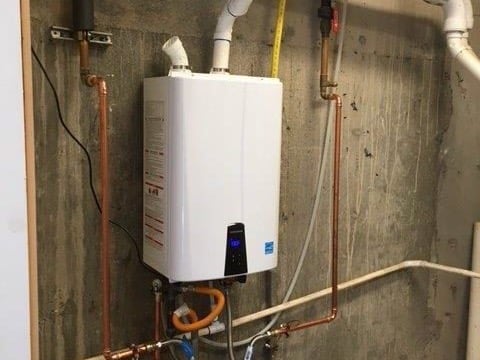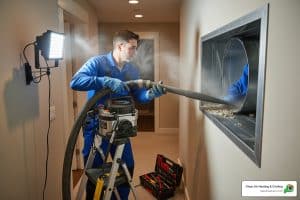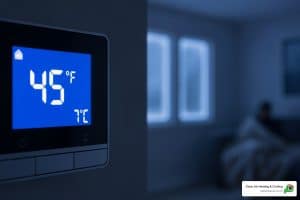How Electric Water Heater Rebates Can Help You Save Big
If you’re looking for electric water heater rebates, you’re in the right place. Understanding these rebate programs can significantly reduce the cost of purchasing and installing a new water heater, making your home more energy-efficient and lowering your utility bills.
Here’s a quick overview of what electric water heater rebates can offer:
- Cost Savings: Rebates can cover a significant portion of your water heater’s cost.
- Energy Efficiency: Upgrading to an energy-efficient model reduces monthly utility bills.
- Environmental Impact: Lower energy consumption means fewer greenhouse gas emissions.
- Wide Availability: Various federal, state, and local rebates are available.
Replacing your old water heater with a new, efficient model can be a game changer. According to the EPA, water heating is a significant contributor to residential energy use. The Energy Star program—which was established in the 1990s to help reduce greenhouse gas emissions—offers substantial incentives for those looking to upgrade their water heaters.
As the owner and president of Clean Air Heating & Cooling, I am dedicated to providing the best HVAC solutions in the Bellingham, WA area. My team and I are here to make the rebate process straightforward, so you can quickly and efficiently save on your next water heater purchase.

Understanding Electric Water Heater Rebates
Federal Tax Credits
Federal tax credits can significantly reduce the cost of your new electric water heater. The IRS offers a 30% tax credit on the cost of purchasing and installing an eligible energy-efficient water heater.
Eligibility: To qualify, your water heater must be ENERGY STAR certified and meet the highest efficiency tier established by the Consortium for Energy Efficiency (CEE).
Claiming the Credit: Use IRS Form 5695 to claim your credit when filing your taxes. The maximum amount you can receive is $2,000. This credit applies to products purchased and installed between January 1, 2023, and December 31, 2032.
State and Local Rebates
In addition to federal tax credits, many states and local utilities offer their own rebate programs. These can further reduce your out-of-pocket costs.
Utility Rebates: Many utility companies provide cash-back incentives for upgrading to energy-efficient water heaters. These rebates often range from $50 to $250 depending on the specific program and your location.
State Programs: Some states offer additional rebates and incentives. For example, Washington has rebates through Puget Sound Energy and Cascade Natural Gas for water heaters and HVAC equipment.
Local Incentives: Check with your local government or utility company to see what rebates are available in your area. These can sometimes be combined with federal tax credits for even more savings.

Example: If you live in the 98225 zip code, you may qualify for specific rebates and tax credits that can significantly reduce the cost of your new water heater. Always check the specific requirements and deadlines for each program to ensure you maximize your savings.
Combining Incentives: You can combine federal, state, and local rebates to maximize your savings. For instance, if you qualify for a $2,000 federal tax credit and a $250 utility rebate, your total savings could be $2,250.
In summary, electric water heater rebates can make a significant difference in the cost of upgrading to a more energy-efficient model. By taking advantage of federal tax credits and state and local rebate programs, you can reduce your upfront costs and enjoy long-term savings on your utility bills.
How to Maximize Your Savings
Combining Federal and State Incentives
Maximizing your savings on a new electric water heater involves a bit of strategic planning. By combining federal tax credits with state and local rebates, you can significantly reduce the overall cost. Here’s how:
- Understand Annual Limits: The federal tax credit for energy-efficient home improvements has annual limits. For example, you can claim up to 30% of the project cost, with a maximum of $2,000 for eligible heat pumps and water heaters. This is separate from the $1,200 limit for other home improvements like insulation and windows.
- Strategic Planning: Spread out your home improvements over a few years to maximize your credits. Suppose you install a heat pump water heater and upgrade your insulation in the same year. You could get a $2,000 credit for the heater and up to $1,200 for the insulation. The next year, you could replace windows or doors and claim additional credits.
- Combine Credits and Rebates: Pair your federal tax credit with state and local rebates. For instance, if your local utility offers a $250 rebate for installing an ENERGY STAR-certified water heater, you can combine this with the federal tax credit for even more savings.
- Check Eligibility: Always verify that your chosen product meets the ENERGY STAR and Consortium for Energy Efficiency (CEE) standards to qualify for these incentives.
Energy-Efficient Upgrades
Beyond just the water heater, making other energy-efficient upgrades can further improve your savings:
- Low-Flow Faucets: Installing low-flow faucets and showerheads reduces water usage and the energy needed to heat the water. This simple upgrade can lower both your water and energy bills.
- Efficient Appliances: Consider upgrading to energy-efficient appliances. Look for the ENERGY STAR label to ensure they meet high efficiency standards. Efficient dishwashers, washing machines, and dryers can all contribute to lower utility bills.
- Insulation: Proper insulation is crucial. It keeps your home warmer in the winter and cooler in the summer, reducing the workload on your heating and cooling systems. This means you use less energy and save more money. Insulation upgrades can also qualify for federal credits and state rebates.
- Thermostat Settings: Adjusting your water heater thermostat to a lower, yet comfortable temperature can save energy. The U.S. Department of Energy recommends setting it to 120°F to prevent overheating and save on energy costs.
By combining these strategies, you can maximize your electric water heater rebates and overall energy savings. Start by planning your improvements, checking eligibility for various credits and rebates, and making energy-efficient upgrades that offer the best return on investment.
Steps to Claim Your Rebate
Finding Eligible Products
To claim electric water heater rebates, the first step is finding eligible products. Not all water heaters qualify for rebates, so it’s essential to choose models that meet specific energy efficiency standards.
- ENERGY STAR Certification: Look for water heaters with the ENERGY STAR label. These products meet stringent efficiency criteria set by the EPA and the Department of Energy, ensuring they use less energy and save you money.
- CEE Qualified: The Consortium for Energy Efficiency (CEE) also sets high-efficiency standards. Products that meet CEE’s criteria often qualify for additional rebates and incentives.
- Rebate Finder Tools: Use tools like the ENERGY STAR Rebate Finder to locate available rebates in your area. Enter your ZIP code to see a list of eligible products and the rebates they qualify for.
Completing the Application
Once you’ve chosen an eligible product, the next step is to complete the rebate application process. Here’s a simple guide to help you steer it:
- Gather Required Documents: You’ll need specific documentation to apply for rebates. Commonly required items include:
- Proof of Purchase: A detailed receipt showing the purchase date, model, and price.
- Product Certification: Documentation proving the product meets ENERGY STAR or CEE standards.
- Installation Proof: Some programs require proof that the product was professionally installed.
- Online Forms: Many rebate programs offer online application forms. These forms are usually straightforward and require you to enter your personal information, product details, and upload the necessary documents.
- Contractor Agreements: If professional installation is required, ensure your contractor provides a detailed invoice. Some rebate programs may ask for contractor agreements or certifications to verify that the installation meets program criteria.
- Submit and Track: After completing the form and attaching all required documents, submit your application. Keep a copy of everything for your records. Some programs allow you to track the status of your rebate online.
By following these steps, you can efficiently steer the rebate application process and maximize your savings on a new electric water heater.
Next, we’ll dive into Frequently Asked Questions about Electric Water Heater Rebates, addressing common queries to help you make informed decisions.
Frequently Asked Questions about Electric Water Heater Rebates
How can I reduce the cost of my electric water heater?
Reducing the cost of operating your electric water heater can be as simple as making a few adjustments around your home. Here are some effective strategies:
- Faster Showers: Shortening your shower time can significantly cut down on hot water usage. Aim for 5-10 minute showers to save both water and energy.
- Full Loads: When using your washing machine or dishwasher, run them only with full loads. This maximizes the efficiency of your appliances and reduces the frequency of hot water usage.
- Thermostat Settings: Lower the thermostat on your water heater to 120°F. This setting is hot enough for most household needs and can reduce energy consumption.
What is the hot water heater rebate in your area?
There are several rebate programs available for upgrading to energy-efficient water heaters. Here’s what you need to know:
- Natural Gas Rebates: If you’re switching to a natural gas water heater, you may qualify for rebates from your local utility company. These rebates can range from $50 to $500, depending on the efficiency of the new unit and the specific program.
- Rebate Amounts: The exact rebate amount varies by utility provider and the type of water heater installed. Check with your local utility company for the most accurate and up-to-date information.
- Eligibility: To be eligible for these rebates, you typically need to purchase and install an ENERGY STAR certified water heater. Proof of purchase and installation, such as receipts and contractor agreements, are usually required.
Is there an IRS tax credit for a tankless water heater?
Yes, there is a federal tax credit available for installing a qualifying tankless water heater. Here’s how it works:
- Federal Tax Credit: Under the IRS guidelines, you can claim a tax credit of up to 30% of the cost of a qualifying tankless water heater, with a maximum credit of $2,000.
- Eligibility Period: The credit is available for water heaters installed during the fiscal year for which you are filing your taxes. For example, if you install a qualifying tankless water heater in 2023, you can claim the credit when you file your 2023 tax return in 2024.
- Savings: This tax credit can significantly reduce the overall cost of your new tankless water heater. Make sure to fill out IRS Form 5695 when you file your taxes to claim this credit.
For more detailed information on how to claim these credits and rebates, consult with a tax professional or visit the IRS website.
Next, we’ll explore How to Maximize Your Savings by combining federal and state incentives, and making energy-efficient upgrades to your home.
Conclusion
Upgrading to an energy-efficient electric water heater can lead to substantial savings on your utility bills. By taking advantage of federal tax credits and state and local rebates, you can offset the initial cost and enjoy long-term benefits.
At Clean Air Heating & Cooling, we’re committed to helping you steer these rebate programs with ease. Our team provides top-notch service, ensuring that your new water heater is installed efficiently and correctly. With over 480 5-star Google reviews, our customers’ satisfaction speaks for itself.
We also offer a 25% utility savings guarantee, so you can be confident that your investment will pay off. Our experts are ready to assist you in making your home more energy-efficient and comfortable.
Ready to make the switch and save big? Contact us today to learn more about our services and how we can help you maximize your savings with electric water heater rebates.
Your comfort is our passion, and we look forward to serving you!





